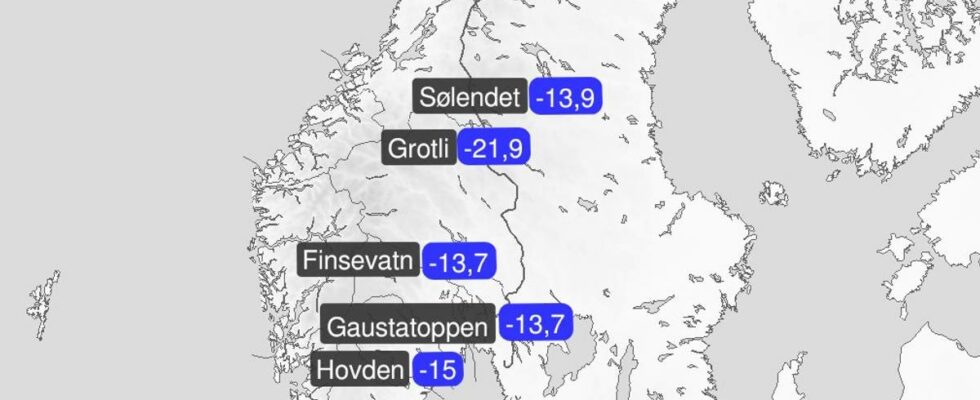The reason for this is said to come from Finland – the so-called “Siberian cold”. These are cold air masses that again come from northern Russia and Siberia, says on-duty meteorologist Sigrid Auganæs. – The cold air will then first come to northern Norway, and then south towards southern Norway and Sweden, she says. It has been down to minus 25 degrees on Finnmarksvidda. It has also been cold in the interior of Eastern Norway, for example minus 21 degrees at Bjorli in the far north of Gudbrandsdalen. State meteorologist Sigrid Auganæs. Photo: Aurora Ytreberg Meløe / news The meteorologists are reporting big temperature differences in the next few days. It seems to be the freshest in Innlandet and Finnmark, which get a bitterly cold start to the day with up to minus 25 degrees in several places. The forecasts look far better elsewhere. Are you ready for the cold? Yes, I love winter ❄ Well, I’ll just have to wrap myself up⛄ No, I miss summer ☀️ Show result New weather this weekend But on Sunday there will be a change of weather. Auganæs says that a low pressure will then come in from Great Britain, which will affect the weather over large parts of southern Norway. – Then there will be a front that sweeps in over large parts of southern Norway. It brings with it precipitation that will first fall as snow in many places. – Slightly warmer air masses come in, and then there will be a transition to rain. Even in the interior, it can be up to five plus degrees in some places, she says. Global influence It is actually global weather conditions that often affect Norway in November. Warm air comes in from the equator, while at the same time there is an influence of cold air from the polar regions. Auganæs says that Scandinavia lies in a divide between these two weather systems. This means that the weather will change. Due to high pressure last Wednesday, warm air masses made their way to northern Norway, creating several double-digit heat records Today, it’s the exact opposite: a low pressure pulls cold air from Siberia southeast to Norway, writes the Meteorological Institute at X. Published 21.11.2024, at 07.40
ttn-69
Ice cold from Finland and Siberia affects Norway – now it’s getting cold – news Innlandet – Local news, TV and radio

